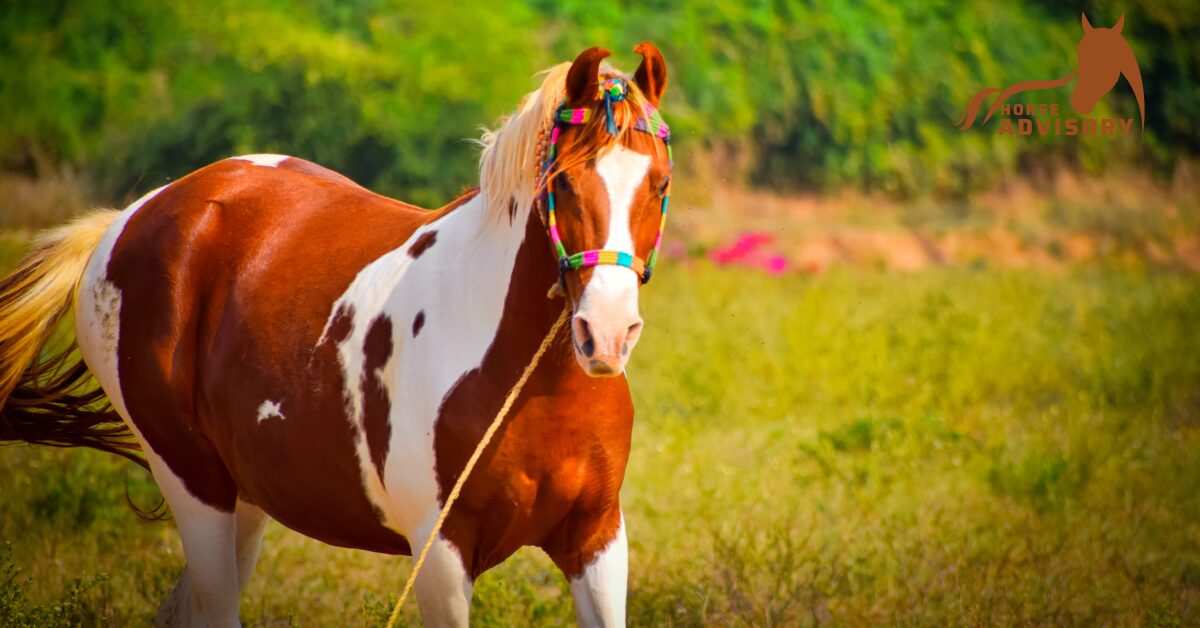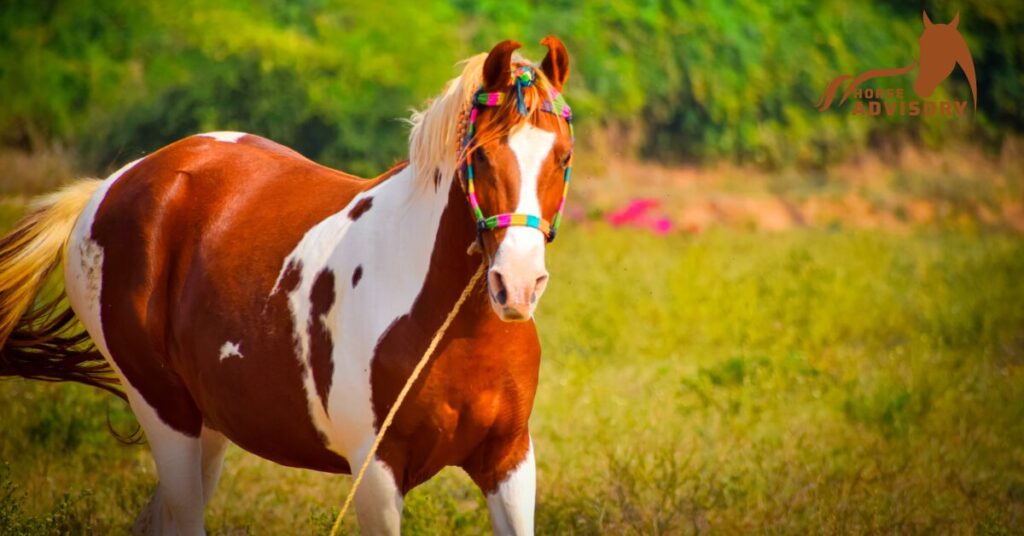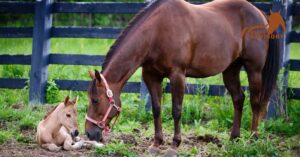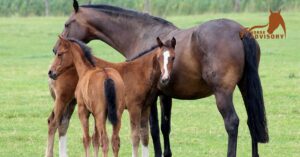The world of horses is filled with a variety of breeds, each unique and beautiful in its own right. Among these, the Marwari horse from India stands out, not just for its distinctive physical features but also for its rich cultural significance. In this blog, we’ll embark on a journey to discover the fascinating world of the Marwari horse.
History and Origin of the Marwari Horse
The Marwari horse has a rich history that’s deeply intertwined with the cultural fabric of India. This breed traces its roots back to the Marwar region of Rajasthan, a land known for its arid deserts and grand palaces. The Marwari breed was developed by the Rathore clan, the erstwhile rulers of Marwar, who were displaced from their homeland and had to venture into the arid desert. In these harsh conditions, they needed a robust horse that could cope with the demanding desert environment. Thus, the Marwari horse was born, bred for its courage, loyalty, and high endurance level.
This breed played a pivotal role in Indian warfare and society. The Marwari horses were revered not just as mere animals, but as brave warriors in their own right. They were an integral part of many historic battles, displaying unparalleled bravery and loyalty to their masters on the battlefield. Their exceptional endurance made them perfect for long, arduous battles, and their intelligence made them responsive and agile in combat situations. The Marwari horse was more than just a horse; it was a trusted companion, a dependable warrior, and a symbol of pride and prestige.
However, with the advent of British colonial rule in India, the Marwari breed faced a tough time. The British preferred their own breeds for cavalry, and the indigenous breeds like the Marwari were sidelined and began to decline. Changes in warfare tactics, such as the introduction of firearms and artillery, further reduced the need for cavalry horses.
Crossbreeding efforts during this period also threatened the purity of the breed. It was only in the late 20th century, when the cultural and historical value of the Marwari horse was recognized, that concerted efforts were made to revive this magnificent breed. Today, thanks to these conservation efforts, the Marwari horse continues to be a living testament to India’s rich equine heritage.

Overview
Breed: Marwari Horse
Adult Weight: 716 up to 881 lbs
Adult Height: on average 14.9 hands (56.8 inches)
Origin: Rajasthan, India
Use: Dressage, Show, Jumping, Dancing
Colors: All colors except white (Albino)
Features: Curled ears where the tips form an arch, small hooves
Lifespan: 25-30 years
Character: disciplined, easy-keepers, tough
Gait: Tactful, sure-footed, elegant
Best for: All level riders
Unique Physical Characteristics of the Marwari Horse
The Marwari horse is a sight to behold. The first thing that captures your attention is their peculiar inward-turning ear tips. This distinctive feature, unique to the Marwari breed, gives them an exotic and charming appearance. The ear tips curve inwards and often touch or overlap each other at the top, creating a sort of arch. This not only sets them apart from other breeds but also provides a practical advantage in the desert environment by protecting their ears from sand.
A closer look at the Marwari horse reveals a sturdy and muscular physique. This breed was developed in the harsh climate of the Marwar region, which demanded a horse with extraordinary endurance and resilience. The Marwari horse exhibits a robust build, with a broad chest and strong, muscular legs designed for long periods of running and galloping in the desert. Their bodies are well-proportioned, and they usually stand between 14.2 and 15.2 hands high.
The beauty of the Marwari horse is further accentuated by their wide range of colors. They come in all equine colors including bay, grey, chestnut, and black. But it’s not uncommon to find Marwaris in more exotic shades like palomino, pinto, and even skewbald. Their colorful coats, coupled with their majestic stance and distinctive ears, make them one of the most visually striking horse breeds in the world.
Beyond their physical attributes, the Marwari horses are also known for their hardy nature. They are highly adaptable and can thrive in different environments, but they are especially suited to the arid desert conditions of their native land. These traits, along with their unique appearance, make the Marwari horse an exceptional breed that’s as captivating as it is resilient.
Temperament and Personality of the Marwari Horse
The Marwari horse is known for its spirited and fiery temperament, a trait that was highly valued in warfare. These horses are renowned for their bravery and courage, often displaying a willingness to charge into situations that other breeds might shy away from. This bravery, coupled with their loyalty, made them the horse of choice for many warriors and nobles in ancient India.
However, despite their spirited nature, Marwari horses are also known for their intelligence and manageability. They are quick learners and can be trained for a variety of roles and disciplines. Whether it’s riding, dressage, or polo, their agility and responsiveness make them a delight to work with. These horses are also known for their loyalty and can form strong bonds with their owners, adding an extra layer of enjoyment to the experience of owning and riding a Marwari.
At the same time, it’s important to remember that like all horses, individual Marwaris may vary in temperament. Some may be more spirited or more laid-back than others. But overall, their unique blend of bravery, loyalty, and intelligence makes them a truly remarkable breed.
Health and Lifespan of the Marwari Horse
When it comes to health and lifespan, the Marwari horse fares quite well. This breed is generally healthy, with a lifespan averaging between 25 to 30 years, which is fairly standard for a horse. Their hardy nature, a result of being bred in the harsh conditions of the Marwar region, contributes to their robust health.
However, like any animal, maintaining their health requires regular care and management. Regular exercise is essential to keep a Marwari horse fit and healthy. This not only keeps their muscles toned but also helps prevent health issues such as obesity and joint problems.
A balanced diet is another crucial aspect of their health care. Marwari horses need a diet that provides all the necessary nutrients, including proteins, vitamins, and minerals. It’s important to adjust the diet according to the horse’s age, activity level, and health status.
Routine veterinary care is also essential. Regular check-ups can help detect any health issues early on, and vaccinations can protect the horse from various diseases. Dental care, deworming, and hoof care are other important aspects of routine veterinary care.
The Marwari Horse in Action: Roles and Disciplines
The Marwari horse, with its rich history and unique traits, is a versatile breed that has adapted to a variety of roles today. In their native India, these horses are often seen in ceremonial duties. With their majestic appearance and elegant gaits, they add a touch of grandeur to weddings and festivals. Their colorful coats and distinctive ears make them a sight to behold, adding to the vibrancy of these celebrations.
But it’s not just in ceremonies that the Marwari horse shines. This breed has also proven its mettle in competitive disciplines. Given their history as war horses, it’s no surprise that Marwaris excel in endurance racing. Their high stamina, coupled with their agility and speed, make them formidable competitors in these races. Additionally, their intelligence and trainability have also made them popular in disciplines like dressage and polo. Their success stories in these various roles speak volumes about their versatility and endurance, proving that the Marwari horse is more than just a pretty face.
Preservation Efforts and the Future of the Marwari Horse
Despite its growing popularity in India, the Marwari horse remains a rare breed outside its native land. However, efforts are being made to promote and preserve this magnificent breed. Organizations like the Indigenous Horse Society of India (IHSI) have been instrumental in these efforts. The IHSI works towards the conservation and promotion of indigenous horse breeds, including the Marwari.
Private breeders too are playing a significant role in preserving the Marwari horse. These breeders are dedicated to maintaining the purity of the breed and promoting their unique qualities. They have been successful in producing high-quality Marwaris that are not only preserving the breed but also winning accolades in various equestrian disciplines.

These ongoing initiatives are ensuring that the Marwari horse does not fade into obscurity. With the concerted efforts of organizations and breeders, the future of the Marwari horse looks promising. It’s hoped that with increased awareness and appreciation for this breed, the Marwari horse will not only continue to thrive in India but also grow in popularity beyond Indian borders, gracing equestrian landscapes worldwide with its unique charm and capabilities.
Modern Marwaris
The Marwari horse, a breed native to the Marwar region of Rajasthan in northwest India, has a long and rich history. Tracing back their lineage to the war horses that served royal families and warriors during the feudal era of India, modern Marwaris continue to captivate with their unique charm and capabilities.
In recent years, the Marwari horse has seen a resurgence in popularity. This is largely due to the efforts of organizations and breeders devoted to preserving and promoting the breed. Modern research has unveiled fascinating insights into the Marwari’s origins and genetics, further adding to its allure.
Today, modern Marwaris are used in various roles, from traditional ceremonies to competitive equestrian disciplines. They have proven their versatility and endurance, demonstrating why they were highly esteemed as war horses in the past.
Cost and Ownership
Buying a Marwari horse can be a significant investment, as their cost can vary depending on factors such as age, training, pedigree, and physical attributes. As a rare breed, especially outside of India, Marwaris can command higher prices compared to more common breeds.
Once you own a Marwari horse, it’s important to consider the ongoing costs of ownership. These include expenses for food, stabling, health care, and training. Regular veterinary check-ups, a balanced diet, and routine exercise are crucial to maintaining the health of a Marwari horse.
Ownership also requires time and commitment. Like all horses, Marwaris need regular exercise and social interaction. Their intelligent and spirited nature means they benefit from mental stimulation, which can be provided through training and varied activities.
Buying a Marwari
If you’re considering buying a Marwari horse, it’s important to do thorough research and possibly seek advice from experienced breeders or owners. It’s also recommended to spend some time with the horse before making a decision. This can help you assess whether its temperament and characteristics are a good fit for your needs and capabilities.
Remember that owning a horse is a long-term commitment. While the Marwari’s unique traits and history might be captivating, they should align with your lifestyle, equestrian skills, and goals. With careful consideration and preparation, owning a Marwari can be an incredibly rewarding experience, providing you with a loyal and impressive equine companion.
Conclusion
The Marwari horse, with its unique physical characteristics, historical significance, and enduring spirit, offers a fascinating glimpse into India’s equine heritage. As we conclude our journey, we invite you to continue exploring this exotic breed, and perhaps, even contribute to its preservation. After all, every encounter with a Marwari horse is not just unforgettable, but also a step towards preserving a piece of India’s rich cultural legacy.





